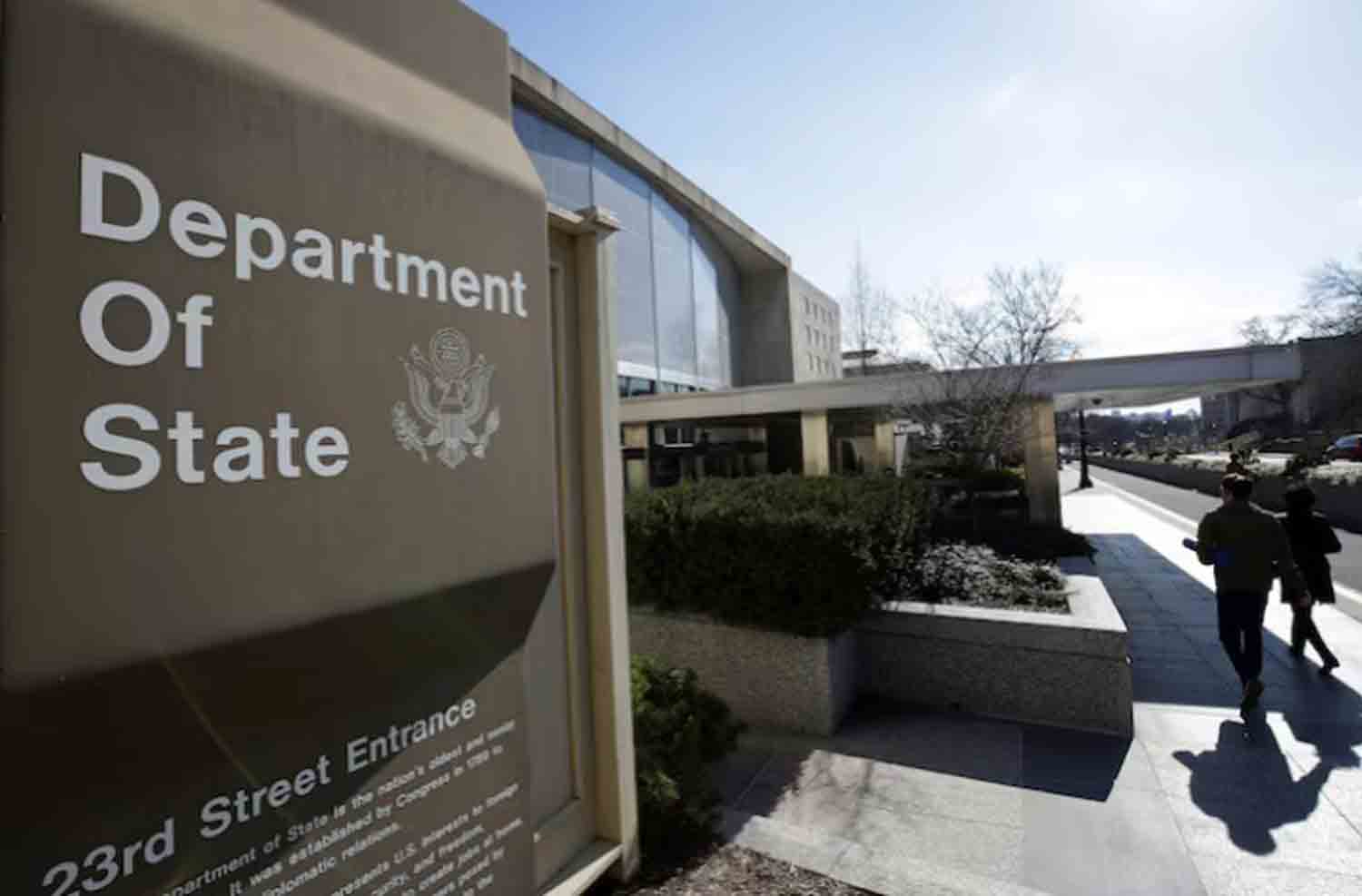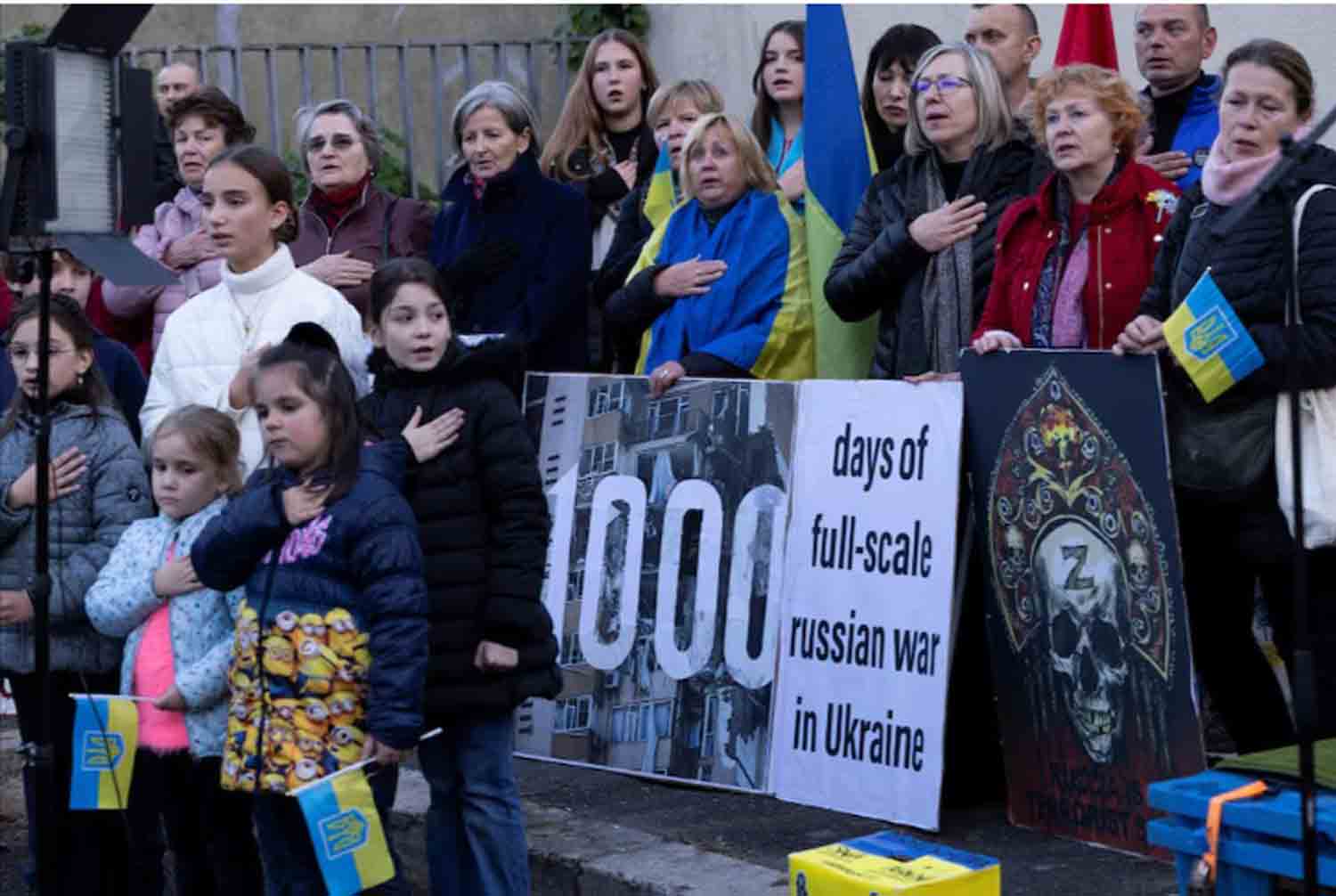After nearly a thousand days of Europe’s most intense conflict since the Nazi era, the prospect of peace negotiations in Ukraine seems to be emerging. German Chancellor Olaf Scholz‘s recent decision to reach out to Russian President Vladimir Putin has ended a prolonged period during which major NATO leaders largely isolated the Kremlin leader.
This development was particularly disappointing for Ukraine’s President Volodymyr Zelensky, occurring within a 72-hour timeframe that included the White House finally agreeing to his request for long-range American ATACMs missiles to be used against targets in Russia. Zelensky expressed frustration, stating that the call had opened “Pandora’s Box,” emphasizing the need for Putin to diminish his isolation.
Shortly thereafter, Zelensky appeared to recognize a shift towards dialogue, suggesting that with the impending presidency of Donald Trump, “war will end sooner,” reflecting Trump’s campaign promise.
Scholz noted that his conversation with Putin confirmed the Russian leader’s steadfast stance on Ukraine, but he stressed the necessity for Europe to engage with Putin, especially if Trump was poised to do the same.
This hour-long discussion signified a return to diplomatic efforts in the long-standing conflict, even though it reiterated that the time for negotiations had not yet arrived.
The recent call introduced an unpredictable element into a Western alliance grappling with significant concerns regarding the conflict’s outcome following Trump’s election, as revealed by over ten interviews conducted by CNN with current and former officials and diplomats in the past week.
A Western official noted a palpable sense of tension among Western capitals as they awaited Trump’s inauguration, describing it as an “overall collective holding of breath.”
The official remarked, “The discussions between the Germans and Putin are likely to be viewed unfavorably by Ukraine’s allies. Providing Putin with any semblance of positive reinforcement will certainly have displeased the French and others.” French President Emmanuel Macron has been particularly outspoken in advocating for ongoing support for Ukraine.
Polish Prime Minister Donald Tusk expressed on X that the significant Russian missile strike on Ukraine that occurred Sunday night demonstrated that “No one will deter Putin with mere phone calls… telephone diplomacy cannot substitute for genuine support from the entire West for Ukraine. The upcoming weeks will be crucial, not only for the war itself but also for our future.”
The Biden administration’s choice to allow ATACMs missiles to be launched at Russian territory may indicate an increasing sense of escalation in the conflict, even as potential peace negotiations come into focus, with all parties aiming to strengthen their positions ahead of a Trump presidency.
Analysts suggested that Chancellor Scholz’s outreach was motivated by the approaching German elections.
“Scholz is positioning himself as a ‘peacemaker’ as he enters the election campaign to attract votes that might otherwise go to the pro-Moscow stance of some German opposition parties,” stated Alena Epifanova, a research fellow at the German Council on Foreign Relations.
Epifanova noted that the decision might resonate with similar sentiments within Scholz’s own SPD party, but she added that “otherwise it’s very unfortunate for Ukraine.”
A diplomat acquainted with the atmosphere at NATO headquarters indicated that there is uncertainty regarding Trump’s stance on ongoing support and peace negotiations, labeling the upcoming months as crucial for the situation on the battlefield in Ukraine.
This uncertainty was mirrored by a senior Ukrainian intelligence official, who remarked to CNN: “It is very dangerous to make predictions now. We hope for the best!”
Most analysts believe that any potential agreement would likely involve a near-freezing of the front lines, with both Moscow and Kyiv potentially offering or receiving security guarantees to avert a resurgence of conflict. Russia continues to achieve small but steady advances along the eastern front, and if the front lines were to be negotiated into new permanent borders, it could effectively annex about one-fifth of Ukraine. Critics of the Kremlin also caution against its historical tendency to use diplomatic efforts as a means to pause or distract from its military ambitions.
A French defense official stated: “Conversations regarding Ukraine’s future have intensified since Trump’s election,” emphasizing the focus on security guarantees for Ukraine.
“What concessions will Russia be willing to make?” the official inquired. “Will Russia retain all the territories it has captured? If we maintain the current status, will the war truly come to an end? Is peace achievable, or will we witness acts of sabotage and subversion?”
Recent commitments from the Biden administration and European nations have significantly increased support for Kyiv in recent weeks, signaling that assistance will remain steady for the foreseeable future.
A second Western official noted that a recent G7 agreement to provide Ukraine with a $50 billion loan, funded by profits from frozen Russian assets, effectively ensures Ukraine’s financial stability throughout 2025.
The specifics of any potential peace plan from Trump remain ambiguous, as analysts point out that the president-elect has not yet developed a clear strategy or appointed individuals to assist in this process. He has claimed he could resolve the conflict in a single day, yet has not elaborated on how he would accomplish this.
Mike Waltz, his incoming national security adviser, has remained largely silent on policy matters since accepting the position. However, he expressed in The Economist just days before the election that a prolonged conflict against a larger adversary is likely to lead to failure.
Allies are finding it challenging to interpret the limited signals from the forthcoming administration. A European diplomat remarked, “We take Trump at his word that he’ll pursue a negotiated settlement,” while noting that the Trump team has been cautious in discussing their policy, preferring to listen rather than disclose specific plans.
Supporters of Trump have partially aimed to counter the perception that the president-elect would prioritize peace at any expense for Kyiv.
Kurt Volker, who served as Trump’s envoy to Ukraine from 2017 to 2019, stated that Trump’s initial approach should be to “demonstrate strength” to ensure Putin understands that continuing the conflict is unwise. “From there, you can work out the specifics. Trump has repeatedly emphasized: ‘peace through strength.’”
Volker expressed his belief that Trump would prefer to provide loans instead of additional aid to Ukraine.
“I am not convinced he will eliminate it entirely. I anticipate a lend-lease program,” Volker noted, which he believes would receive broad support from Republicans, drawing a parallel to a World War II initiative where the U.S. supplied military equipment to Allies without expecting it back.
“It doesn’t burden the taxpayer… ‘Borrow as much as you need, enhance your military, be strong, but you must bring the war to an end.’”
Volker also mentioned that Trump would likely be affected by the U.S. “catastrophe” in Afghanistan during Biden’s administration.
“Trump wanted to withdraw from Afghanistan himself, but he was always cautioned about the potential consequences,” Volker remarked.
“He aims to avoid a similar disaster during his tenure. He will seek a resolution to the conflict while ensuring Ukraine remains intact.”
The appointment of Waltz as national security adviser and the nomination of Senator Marco Rubio for secretary of state—both known for their hardline stance on China—could lead to heightened scrutiny regarding the deployment of North Korean forces and weaponry by Moscow to the front lines, according to Western officials.
This strategy may prove detrimental for Putin, as it could transform the Ukrainian conflict into a more global battleground, compelling the United States to confront Indo-Pacific adversaries such as Kim Jong Un and his occasional ally, Beijing.
A former U.S. diplomat, who is well-acquainted with Trump’s diplomatic style, noted that the president-elect’s notably amicable approach toward the Russian leader arises from his desire to avoid “demonizing adversaries or those with whom he needs to negotiate.”
The diplomat further stated, “He will make difficult policy choices or delegate that responsibility to others,” but he aims to maintain a constructive relationship.
The former diplomat emphasized that due to Moscow’s history of deceit in negotiations, it is crucial for Kyiv to be adequately equipped as part of any agreement. “Let’s be clear: Putin will not be genuine,” the diplomat remarked.
“He will demand unreasonable concessions. Even if he consents to a ceasefire, he will likely plan further attacks in the future.”
Discover more from Defence Talks | Defense News Hub, Military Updates, Security Insights
Subscribe to get the latest posts sent to your email.





